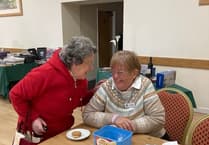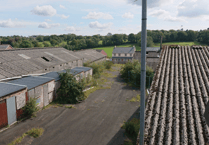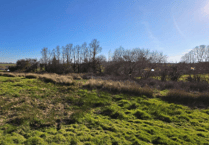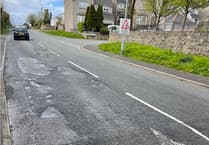THE public are being asked to aid research being made by volunteers at Holsworthy Museum into prisoners of war who were held at a camp in the town.
From 1942 until 1948 Holsworthy played host to many hundreds of Italian, and later German, prisoners of war, who found themselves behind the wire of what was officially designated Camp 42 Prisoner of War Working Camp.
Built in the summer of 1942 on the site of the original Exhibition Field, adjoining Foresters Road and Dobles Terrace, the camp was opened in October of that year, when more than 750 Italian prisoners arrived.
Italy had entered the Second World War in June 1940, nine months after Britain had declared war on?Nazi Germany.
Many of the Italian prisoners of war in?the Holsworthy camp worked on local farms throughout the area and later, after the fall of Italian leader Benito Mussolini in 1943, were granted much more freedom.
The first German prisoners arrived in November 1944, followed by a constant stream of others arriving in the camp over the next four years — many of whom were taken prisoner after the liberation of the Channel Islands in May 1945.
Others arrived, having returned from camps in Canada and America.
The camps did not close at the end of the war in 1945. Instead the need for agricultural labour throughout the country meant the last prisoner did not leave until 1948. By this time the camp was the administrative centre for five other camps throughout Devon and Cornwall.
After the last prisoner had left, plans were made to convert the camp into a displaced persons’ camp for Poles. However, the scheme was dropped and many of the huts in the guards’ compound and the prisoners’ compound were converted to temporary housing.
Holsworthy Museum’s historian, Shawn Dymond, said: “It is possible that there are people in Holsworthy today who spent their early years growing up in these huts.
“Nothing remains of the camp, and little has been written regarding its history, or on the lives of those who found themselves there.
Mr Dymond, has spent a number of years gathering together the few surviving, official documents and piecing together the story for eventual publication.
He added: “Anyone with photos, memories or stories relating to the camp, particularly during the 1942-1945 period is asked to come forward and share what they know.”
Contact Shawn on [email protected] or leave a message at Holsworthy Museum on 01409 259337.




